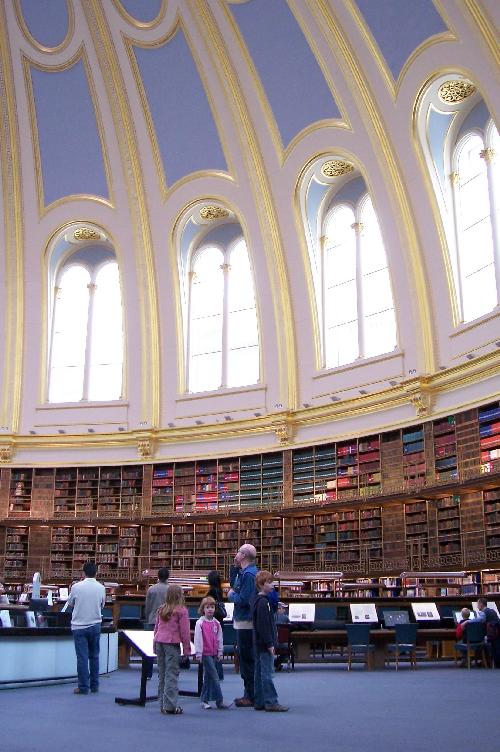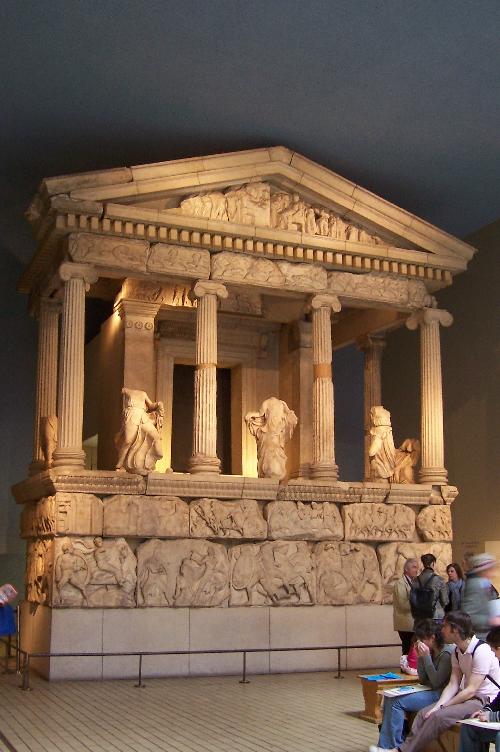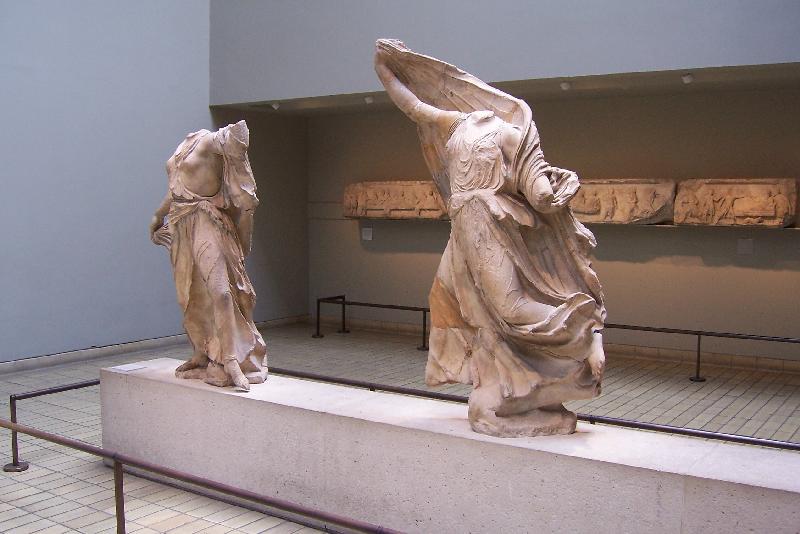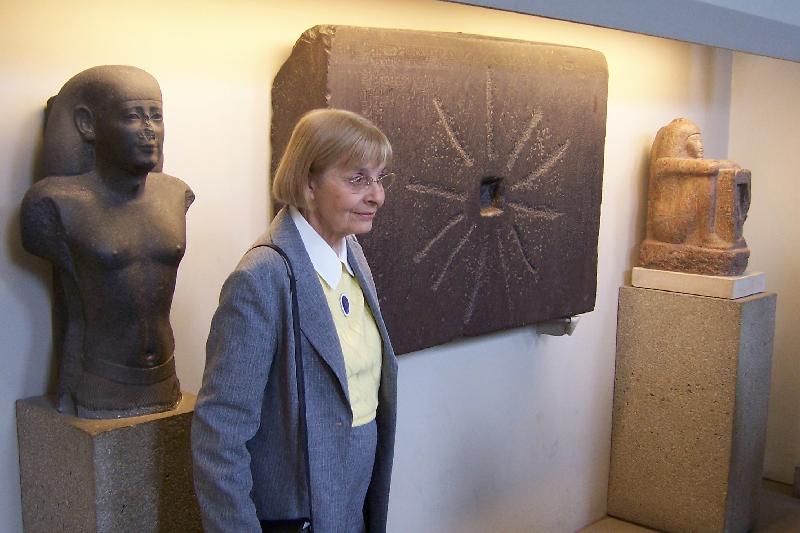 |
 |
UK 2006
Ten delightful days with my daughter touring London and the Highlands of Scotland
- May 26th through June 4th -

Jennifer and I spent an excellent morning at the famed British Museum.
After wandering through the new Michelangelo exhibit (no photos allowed),
we took a guided tour of the museum highlights.
 |
 |
| The towering, domed Reading Room
contains but a small portion of the museum's massive collection of
books from around the world. It is quite a stunning space. |
This Nereid Monument is a
partial reconstruction of an elaborate Lykian tomb from Xanthos in
southwest Turkey, dating from around 390-380 BC. |
 |
| These are two of Three Nereids
which originally adorned the monument bearing their name. Meant to
represent daughters of the sea-god Nereus, these female figures with
so-called flying draperies are thought to have stood between the
columns of the tomb. |
 |
| Pam Web, our knowledgeable and
genteel docent, describes three objects of Egyptian antiquity. LEFT: The upper part of a black
granite statue of a high-ranking man, dating probably to the seventh
century BC. This is the type of statue which would be set up in a
temple courtyard to commemorate an important official, and to enable
his spirit to receive a share of the offerings of food and drink which
would be presented to the god of the temple. In this instance no
inscription survives to identify the person depicted. CENTER: This is a black basalt
tablet known as the "Shabaka Stone," from Memphis. Dating from about
710 BC, this slab bears a hieroglyphic inscription indicating it was
carved on the orders of King Shabaka in order to preserve the text of
an important religious doctrine now referred to as the "Memphite
Theology." The text contains an account of the creation of the
universe, giving special attention to the role played by Ptah, patron
god of the city of Memphis. RIGHT:
A red granite statue of an official named Ankh-khered-nefer from Tell
el-Maskhuta in the Nile Delta. He lived during the reign of King
Osorkon II, about 850 BC, and is shown in a squatting pose, presenting
a figure of a deity in a shrine. |
To see more of our trip, click on the links below:
LONDON
London Home Page
Chelsea Flower Show
Tower of London - Part One
Tower of London - Part Two
Billy Elliot - The Musical
SCOTLAND
Trafford Bank Guesthouse
Discovering Loch Ness - Part One
Discovering Loch Ness - Part Two
Cawdor Castle - Part One
Cawdor Castle - Part Two
Note: each page includes links to each of the others
Click here to return to my homepage
Encouraging words are always welcome at
johndallasbowers@verizon.net